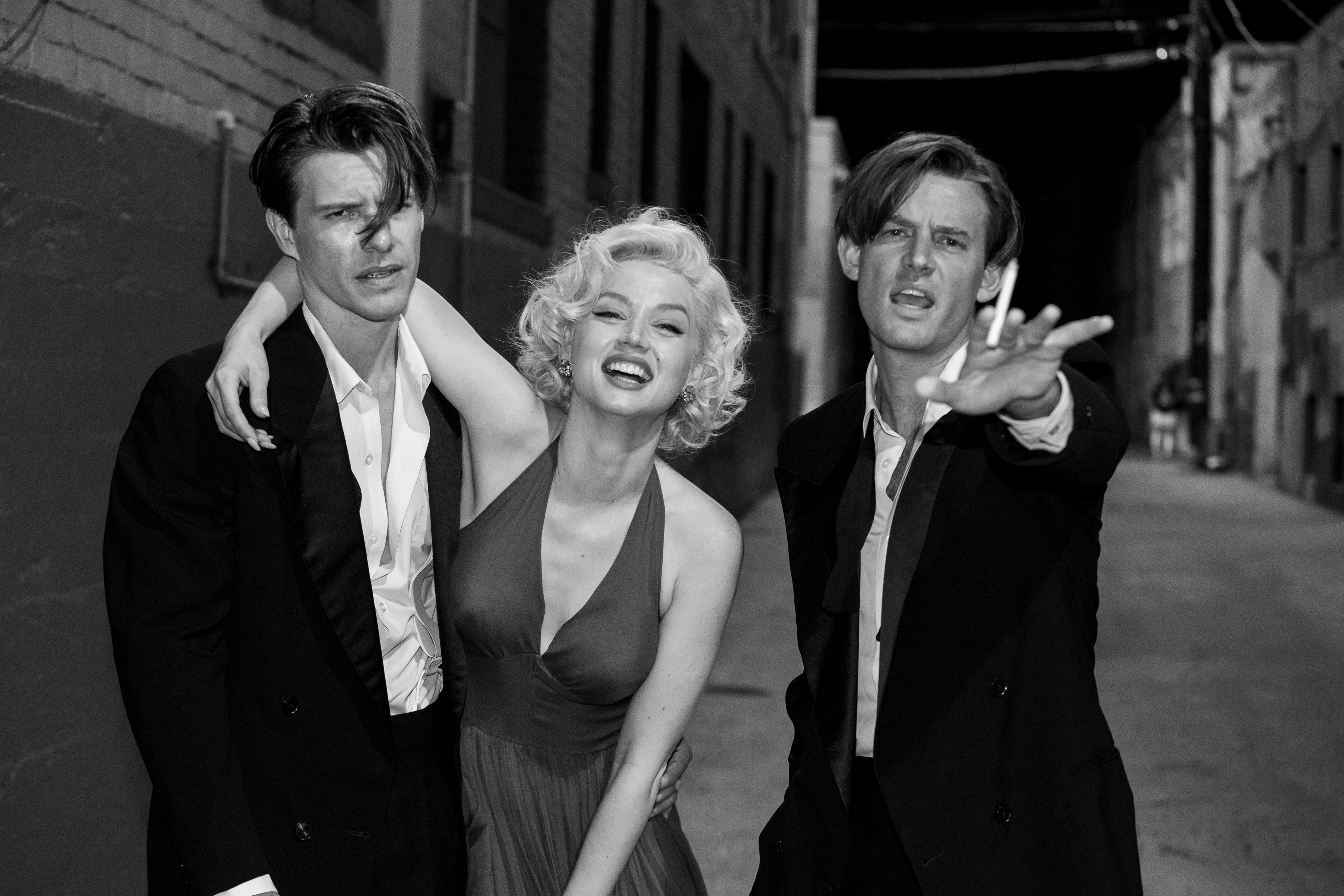Blonde review: Dull trauma porn with no idea what it’s trying to say
Andrew Dominik’s biopic is degrading, exploitative and misogynist, yet mercilessly boring
Dir: Andrew Dominik. Starring: Ana de Armas, Julianne Nicholson, Adrien Brody, Bobby Cannavale. Cert 18, 165 minutes
Never mind the diamonds. I’ll tell you who isn’t a girl’s best friend: Andrew Dominik, the writer-director of Blonde, a merciless, dull, over-long riff on Marilyn Monroe. Across its lengthy running time, the Hollywood star has a time of it. She is nearly drowned by her mother. Raped at an audition. Forced into an abortion. Harangued by the unborn foetus she’s about to abort. Attacked by a husband she calls “daddy”. It’s no exaggeration to say that she cries in almost every scene. To borrow a phrase, if you can’t handle Marilyn Monroe as an adult woman in possession of agency, you sure as hell don’t deserve to make an almost-three-hour film about her.
But Blonde is not a bad film because it is degrading, exploitative and misogynist, even though it is all of those things. It’s bad because it’s boring, pleased with itself and doesn’t have a clue what it’s trying to say. Based on Joyce Carol Oates’s sprawling 700-page novel, which offers a fictionalised version of Monroe’s life, the script consists of the star saying things like, “she’s pretty, I guess, but she isn’t me” or, “I guess there isn’t any Norma Jeane, is there”. At one point, she declares “f*** Marilyn, she’s not here!” and slams down a phone. Insightful. All I could think was, “the old Taylor can’t come to the phone right now”. This surface-level observation, that her constructed persona might have induced a sense of depersonalisation, does not feel revelatory or new. You’d expect to watch Blonde for what it might tell us about Monroe’s life, her legacy, or the culture that remains infatuated with her. You’ll find none of these things.
The film flits between scenes in colour and black and white, inserting real events like her marriages and film roles, with invented ones, such as a threesome with Charlie Chaplin’s son and Edward G Robinson Jr. As Monroe, Ana de Armas has an edgy, nervous energy. It’s a deceptively sophisticated portrayal, playing a person who is always playing a role. But she is kept in a place of perpetual skittishness that is exhausting to watch, in a performance so demanding that in one scene – a bedroom encounter with a president who is obviously JFK – she almost has to deep throat the camera. Julianne Nicholson is eerily disturbing as Monroe’s mentally unwell mother, but as her husbands Joe Di Maggio and Arthur Miller (here “The Ex-Athlete” and “The Playwright”), Bobby Cannavale and Adrien Brody have little to do but be in Monroe’s orbit, nastily or blankly inflicting more misery.
Films about the lives of the famous don’t, of course, have to cleave to the conventional biopic narrative. Some of the best don’t: Pablo Larraín’s Spencer, through hallucinatory imagined scenes, gave us an intense, artful psychological portrait of Princess Diana. It made things up to search for a deeper truth, which was how it might have felt to be her. Its star, Kristen Stewart, described it as “a tone poem”. But, unfortunately, Blonde is just trauma porn.
If I could grasp at one thing I thought the film was exploring, it was the idea of Monroe as a psychic space, a creation that haunted the real person trying to occupy her. We see her in an acting class, losing control, overcome by the feelings she’s trying to summon for her character. After she’s read for an audition, one of the men watching declares her to be “like watching a mental patient – no technique”. His colleague agrees: “People like that, you can see why they’re drawn to acting. Because the actor in her role always knows who she is”. Unable to grasp her public or private self and failing to forge a solid identity, she is lost and vulnerable.

But the psychological pressure of being the most photographed woman in the world is never really summoned. Aside from some meticulously choreographed recreations of film scenes, some unimaginative looming paparazzi shots and some billboards, Monroe’s world feels hermetically sealed. She is so isolated a figure here that we don’t get a sense of her dizzying celebrity, her impact on the public, or vice versa. Part of the problem is that the film skips forward from her difficult childhood straight into Monroe as a fully formed star. We don’t observe her trajectory or even the introduction of a characteristic so iconic the film itself is named for it – the moment she went blonde.
There is something disingenuous about a film that goes to such lengths to recreate Monroe’s exterior so faithfully while tormenting her interior to no clear end. Why is this film so invested in her misery? How does a film as seedy as this still get made? We all lose our charms in the end, but Blonde never had any to lose.
Join our commenting forum
Join thought-provoking conversations, follow other Independent readers and see their replies
Comments


Bookmark popover
Removed from bookmarks